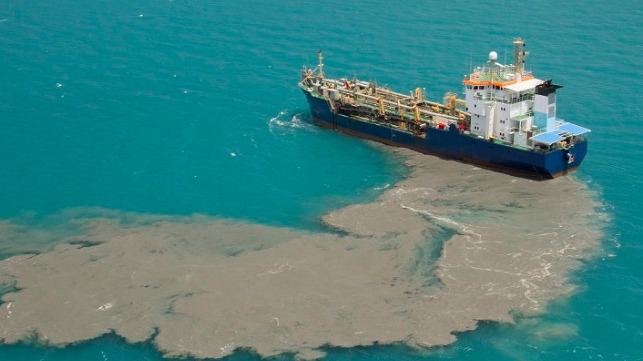EU to Add Sewage, Garbage, and Scrubber Water Discharge to Pollution Rules

The European Union is moving toward stricter measures designed to decrease pollution by increasing the number of materials that would be banned as discharges from ships in European waters. The Transport and Tourism Committee put forward a series of proposed steps expanding the limits on illegal discharges from ships as part of an overall review launched in June 2023 designed to modernize and reinforce EU maritime rules on safety and pollution prevention.
Among the steps adopted in a draft mandate by the committee on Thursday, November 16, was the proposal to extend current EU rules on discharges to include sewage, garbage, and residues from scrubbers. This would expand on the current rules preventing the discharge of oil and other liquid substances that are judged to be noxious or pollutants. According to the committee, the draft that was adopted is designed to ensure that all international standards on preventing illegal discharges from ships, developed by the International Maritime Organization, become part of the EU.
“The current EU rules do not work, because they are weakly applied by member states,” said Romanian member of the EU Parliament Marian-Jean Marinescu speaking on behalf of the committee. “It is time for member states to step up and protect European seas from the harmful effects of ships illegally dumping waste. It is necessary to effectively detect illegal discharges and set penalties at levels that serve as a real deterrent.”
In addition to widening the ban on pollution from ships, the committee is proposing steps to enhance the enforcement and increase the penalties imposed. The draft calls for expanding the responsibility of shipowners for any environmental damage caused by one of the ships they operate. In the case where the master of the vessel or its crew responsible for the illegal discharge can not be located or cannot afford to pay the penalty, the draft calls for the responsibility to fall to the shipowner. In addition, they want EU governments to avoid setting maximum or minimum penalties for infringements to “ensure that the effectiveness and proportionality of penalties are not undermined.”
They also highlighted that the current European satellite-based alert system for oil spill and vessel detection, CleanSeaNet, lacks reporting on how pollution incidents are followed up and the outcome. They are calling for member states to increase the sharing of information as well as a requirement to advise the European Commission on pollution incidents.
As part of the enforcement efforts, they are also calling for increased verification on the spot and as soon as possible after an alert is issued by CleanSeaNet. Under the draft mandate, they are calling for a requirement that half of the incidents be verified on the spot. The committee highlights that increasing the speed of verification is critical to prevent an illegal discharge from dispersing and becoming undetectable by the time authorities arrive at the location.
The draft was adopted by the Transport and Tourism Committee by a vote of 36 to one. There also was unanimous agreement that talks should begin with member states on the final shape of the legislation. The new rules from this session would focus on administrative fines for pollution from ships, while separate negotiations are also underway for criminal sanctions which would be put forth in separate legislation.
No comments:
Post a Comment